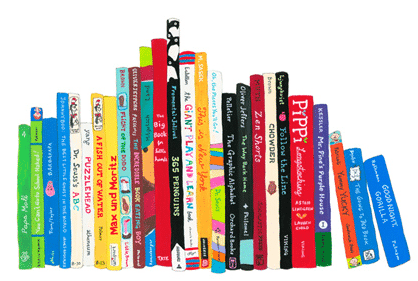Children’s Book Writing Requires Skill and Perseverance
It is not easy to become a published author of children’s books. Children’s book authors must work on their craft and be savvy about getting their work published—otherwise, the rejection pile awaits their hard work.
These recommendations will make it easier to become a published book writer
Become Familiar with Children’s Book Writing
Reading published children’s books is an education. Your work needs to appeal to children. Learn how to communicate with your audience by reading children’s literature.
A more formal education is also an option. Take a class, or get a degree in writing for children, if you have the time and money. Vermont College offers a graduate degree in writing for children that only requires 11 days on campus per semester. Check it out along with other nearby options.
Learn about Publishing
Finding out how and where to submit your manuscripts is an important part of the process. Check out the Children’s Writer’s and Illustrator’s Market and Writer’s & Illustrator’s Guide to Children’s Book Publishers and Agents. These reference resources contain useful information about publishing.
Read other books about publishing such as the Complete Idiot’s Guide to Publishing Children’s Books. Other publishing resources include the Literary Marketplace, Publishers Weekly, and Writer’s Market.
Consider Joining an Organization
Join the Children’s Book Council and/or the Society of Children’s Book Writers and Illustrators. SCBWI’s website is: www.scbwi.org. You may also be able to find a SCBWI advisor in your state and/or a writers’ group. By joining the national organization, you automatically become a member of its state affiliate. SCBWI holds workshops and conferences.
Write What You Want
Do not try to follow a trend. Be authentic. Your authenticity will shine when you write what you want and know, not what you think will sell.
Get Feedback about Your Writing/Manuscript
Feedback can improve your writing. Get feedback through a writers’ group, workshop, or other resource such as the Highlights Foundation which helps authors and illustrators of children’s literature hone their craft.
Get Professional Assistance
Professional assistance is helpful when a writer deals with publishers. SCBWI has a list of agents. If you cannot afford a lawyer, join the Writers Union. It offers a contract review service.
Adhere to Publishers’ Guidelines
Learn how to write query letters. Query letters are your marketing pitch. After you have identified potential publishers, follow their submission guidelines. Only contact editors if the submission guidelines permit.
Use the Feedback from Editors
Personal rejection letters from editors are an educational resource. You will learn about their preferences and how to improve your work from this feedback. Keep a record, so you have this information for available reference.
Do not get discouraged by rejection letters. Getting published is not easy, and all published writers get rejection letters. You can realize your dream with persistent commitment.
- Published in Writing & Editing Resources

